|
To see long excerpts from “David and Goliath” at Google Books, click here.
|
“David and Goliath: Underdogs, Misfits, and the Art of Battling Giants”
A book by Malcolm Gladwell
Like a lot of Truthdig readers, I didn’t grow up studying the Old Testament. We no longer expect every well-educated reader of English to know bits of the King James by memory. How quaint would that be, when so many who haven’t read the Bible are carving out respectable careers in publishing — or thumbing the pages of Malcolm Gladwell’s fifth book, “David and Goliath: Underdogs, Misfits, and the Art of Battling Giants”?
Gladwell, though made in England and Canada, has made it in America, where the Bible belongs to its believers. The Old Testament is literary catnip for social conservatives, but secular readers rarely investigate because our resources include an intellectual freedom often missing in many religiously shaped lives. This privilege turns out to be a disadvantage because the Old Testament stories have never gone away and have more power than we realize.
In “David and Goliath,” Gladwell uses the tale related in 1 Samuel 17 to explore “lopsided conflicts” — a curfew imposed by the British army on a Catholic part of Belfast; a mediocre team from an affluent California city playing against the “born-with-a-basketball girls”; a canny civil rights leader looking for ways to provoke Birmingham, Ala., public safety commissioner Bull Connor in 1963. Gladwell begins by warning us that “we consistently get these kinds of conflicts wrong. … Giants are not what we think they are.” The “giants” or “powerful opponents” Gladwell wants us to get right (or at least reconsider) include “disability, misfortune” and Ivy League schools.
In Gladwell’s “theory of desirable difficulty,” we mistakenly identify privilege as strength. He focuses on colorful individuals such as Hollywood producer Brian Grazer and the well-known litigator David Boies, suggesting that dyslexia, apartheid, childhood misery and the size of your daughter’s fifth grade class are existential cousins. Juicy opportunities are left on the table because we’re so busy trying to ally ourselves with giants — like the Ivy League. When holding the upper hand, we underestimate the underdog’s advantage and place too much faith in our own. The British Army in Belfast “did not understand that power has an important limitation. It has to be seen as legitimate, or else its use has the opposite of its intended effect,” says Gladwell, showing a pronounced sympathy for Northern Ireland’s besieged Catholics. Too often, we misconstrue our enemies.
All this because we don’t really know what went down with David and Goliath.
Gladwell sets out to correct the record, though what happens when shepherd boy meets professional monster in the valley of Elah is “a matter of legend.”
We should be wary, though, when Gladwell, who grew up around evangelicals, makes a point of indulging both secular readers and believers. He plays a gentle trick on the latter — “medical experts now believe … Goliath had a serious medical condition” — and makes this poignant loser, with his pituitary tumor and his “diplopia” (a fancy name for double vision), sound like the invalid next door rather than a constructed character designed to advance political and tribal agendas. So far, so mischievous.
If we consistently get David and Goliath wrong, it’s partly because we get our impressions of this dynamic dyad from everything but the Book of Samuel. The mismatched fighters appear in paintings, cartoons, movies and — too often — news headlines. Facebook, Israel, immigration reform and high finance, along with primary and state elections, have all inspired confusing comparisons with David and Goliath. Confusing, because nobody likes to identify with Goliath, and everybody (even a reactionary anti-immigration lobbyist) wants to be seen as David, the righteous and ultimately triumphant underdog.
Somewhere in our collective secular hard drive, we have stored a tabloid story that seems, like a Daily Mail teaser, wonderfully cheap and compelling: small cocky shepherd boy, hulking giant, slingshot, moral victory. (Or perhaps merely a military solution.) This, and the lesson itself — the small shall conquer the large because they have justice (previously known as God) on their side — is what we carry in our heads.
Einstein called the Bible “a collection of honourable, but still primitive legends which are nevertheless pretty childish.” This particular legend is alarmingly childish because of its happy ending. Our biggest mistake is in seeing it as a physical duel, rather than a political triangle involving King Saul. Because of Saul, the long aftermath of David’s showdown with the giant is neither happy nor pretty.
A seriously premodern ruler, Saul will try to get David killed by ordering him to go forth and circumcise a hundred Philistines. He sweetens the trap by offering David one of his daughters. When that plan backfires, Saul tries to have David assassinated. David’s most important adversary isn’t Goliath, it’s King Saul — the father-in-law from hell. To stay alive, David concocts a murky deal with the Philistines. Jonathan, Saul’s son, makes a controversial pact with David, creating yet another political trine. By the time Saul is dead and David proclaimed king, the ingenious shepherd has slaughtered so many people we’ve lost count. In the Bible, David’s messy relationship with the king unfolds over 16 chapters; his brief encounter with Goliath occupies one. Even in the minds of nonbelievers and not-quite-believers, Goliath’s importance is exaggerated. Goliath is a Sunday-school favorite. A grotesque enemy has more popular appeal (and is easier to teach the children about) than a murderous father figure.
It’s been said in The Nation that Gladwell writes for people who buy “books you can talk about with your boss” — a snooty but relevant assessment, since you might speak as carefully to a boss as to a child.
So would you rather chat with the boss about Gladwell’s Goliath or Samuel’s King Saul, the jealous CEO plotting to destroy a talented newbie? King Saul, essential to the Goliath story, turns out to be a high-ranking in-house hater, triangulating and treacherous as only a family member can be. Goliath, a hired thug from across the way, is more clean than mean. That’s why David and Goliath is such a palatable — Gladwellian, actually! — story.
Gladwell keeps us engaged through seven congenial chapters, telling stories of individuals facing great challenges, while treating us to charts, graphs and diagrams. Have you ever wondered why so many dyslexic dudes appear to be running the world? Well, Ikea, Goldman Sachs and parts of Hollywood, certainly, and at least one prominent law firm. Your boss may be one of those gifted dyslexics, who, like Brian Grazer, “learned how to do everything possible to sell my point” or, if he has half of David Boies’ compensatory talent, there is “no stray comment or revealing admission from … an hour or a day or a week before” that won’t be “heard, registered and remembered.” For Gladwell, who often sounds as shrewd and cheerful as Eleanor Porter’s fictional heroine Pollyanna, “The act of facing overwhelming odds produces greatness and beauty.”
In Chapter 8, the tone changes.
Mike Reynolds, a dad who seems very much like an Old Testament figure, has never recovered from his 18-year-old daughter’s violent death. He’s the architect of California’s notorious Three Strikes statute, signed into law in 1994, two years after his daughter Kimber was killed –because, says her father, “I’m going to do everything in my power to try and prevent this from happening to anybody else.”
Reynolds isn’t satisfied — how could he be? — but he doesn’t admit that Three Strikes could be a mistake, even when he learns that California has become a place where you can be sentenced to 25 years to life for stealing a TV set if you’re a repeat offender. Gladwell creates a convincing portrait of a tragic individual who “employs the full power of the state in his grief” and still feels incomplete, “plunging his government into a fruitless and costly experiment.”
I don’t know whether a keen understanding of a Goliath’s limited power would have stopped Reynolds from embarking on his campaign, but he certainly didn’t do this alone. Career-building prosecutors, and all that profit from the California prison industry (including any companies doing business with the system) are among those benefiting from his grief — and, perhaps, from his daughter’s death.
Gladwell’s encounter with Reynolds is part of a problem we all, increasingly, live with. Three Strikes came into existence during the first decade of widespread sex offender registries. Consider the parallels:
Patty Wetterling, whose 11-year-old son Jacob disappeared in 1989, began promoting sex offender registration laws in 1990. In 1991, a Minnesota law was passed. In 1994, the Jacob Wetterling Sex Offender Registration Act was part of President Clinton’s Crime Bill. Another federal law, the Adam Walsh Act, received support, over the years, from grieving parents and was passed in 2006. Like Three Strikes, all these laws were championed to protect or vindicate the powerless. They are broader than you’d expect.
Sex offender registration has been used to punish children who would have been scolded for playing doctor in 1988, to imprison women who sell sex to survive, to criminalize high school students in consensual romantic relationships. Children younger than Jacob Wetterling was at the time of his abduction have been branded as sex offenders. One critic of sex offender registration in recent years is Patty Wetterling. Her principled opposition to a law she once lobbied for is rather inspiring, for our largest mistakes are the hardest to acknowledge.
It’s not just that people misread state power. It’s worse. By positioning yourself as the underdog, you can humiliate others, destroy lives, misuse your government’s power and maybe even get a bad law passed. People who see their struggles in David and Goliath terms are naive and often dangerous. Sometimes, as Gladwell shows us, they influence the justice system and create lasting damage.
On Twitter and elsewhere, “Check your privilege” has become the underdog’s political putdown du jour, a stone in every David’s virtual sling. Underdogs exist across the political spectrum — left, right, libertarian, feminist, antifeminist — and they have more in common than they care to admit. I don’t know whether Gladwell would agree with me, but I think the time has come for every David to check his conscience. Or hers.
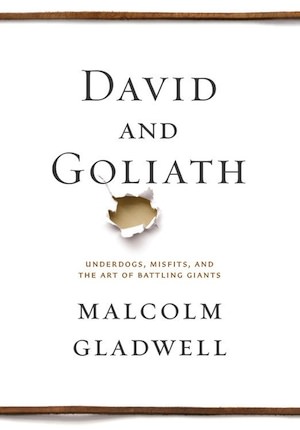
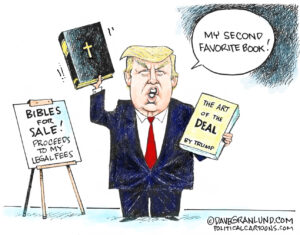
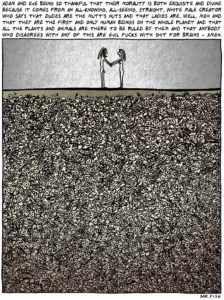
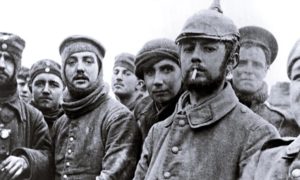
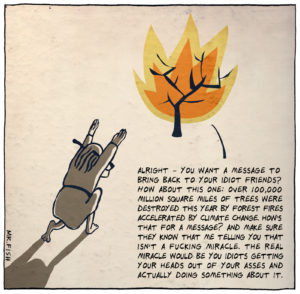
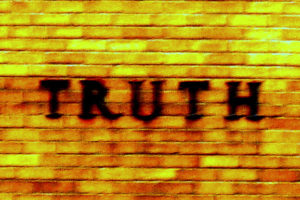
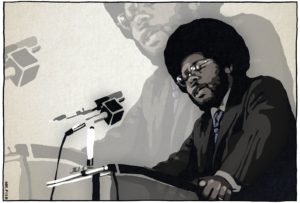
You need to be a supporter to comment.
There are currently no responses to this article.
Be the first to respond.